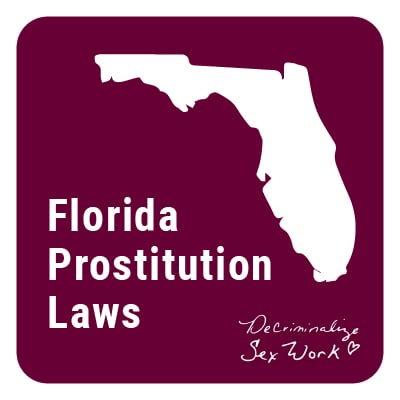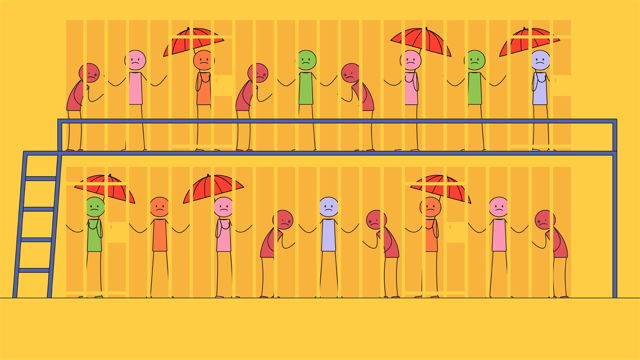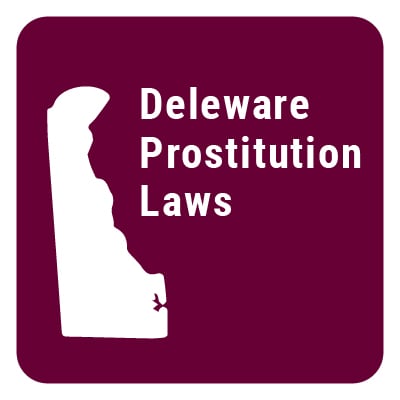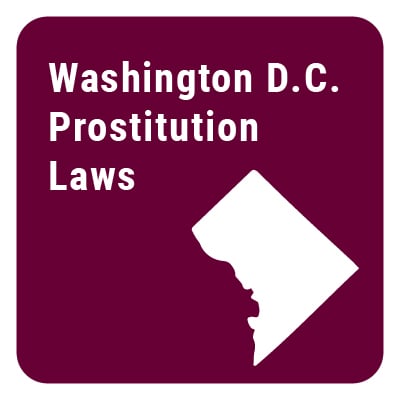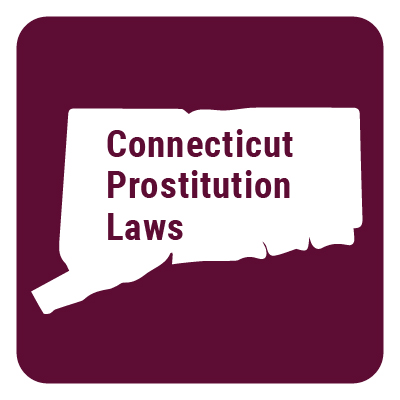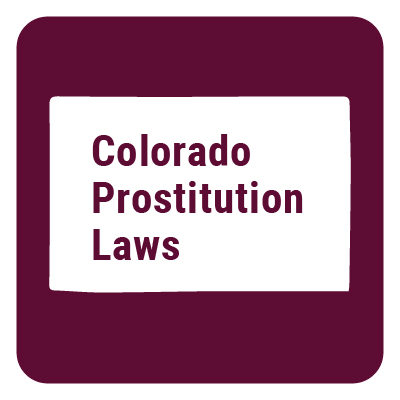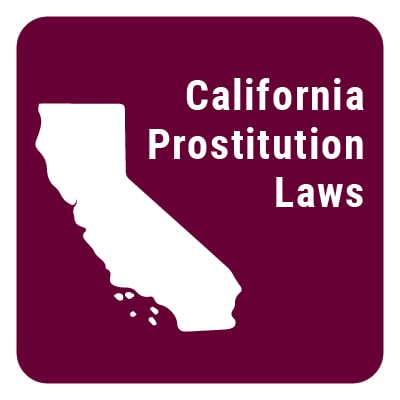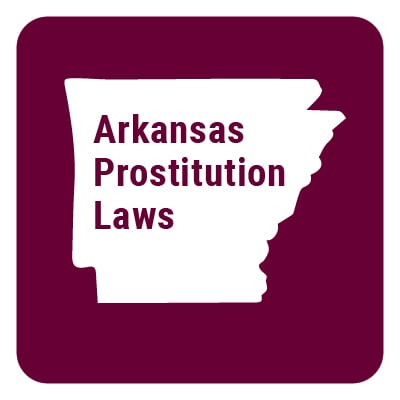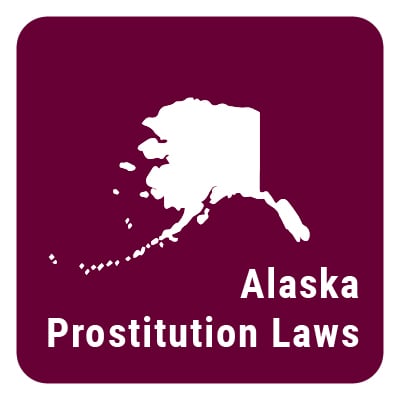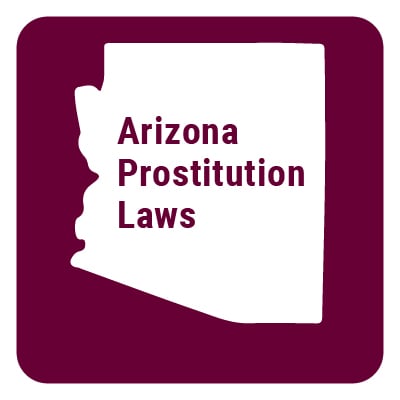Is prostitution legal in Georgia?
Georgia prostitution laws make it illegal to offer to perform sexual acts in exchange for money. It is not necessary that the act actually occurs or that money actually exchanges hands.
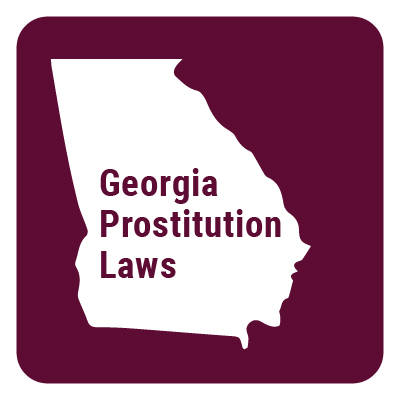
Prostitution Laws of Georgia
16-6-9
A person commits the offense of prostitution when he or she performs or offers or consents to perform a sexual act, including but not limited to sexual intercourse or sodomy, for money or other items of value.
16-6-10
A person having or exercising control over the use of any place or conveyance which would offer seclusion or shelter for the practice of prostitution commits the offense of keeping a place of prostitution when he knowingly grants or permits the use of such place for the purpose of prostitution.
16-6-11
A person commits the offense of pimping when he or she performs any of the following acts:
(1) Offers or agrees to procure a prostitute for another;
(2) Offers or agrees to arrange a meeting of persons for the purpose of prostitution;
(3) Directs or transports another person to a place when he or she knows or should know that the direction or transportation is for the purpose of prostitution;
(4) Receives money or other thing of value from a prostitute, without lawful consideration, knowing it was earned in whole or in part from prostitution; or
(5) Aids or abets, counsels, or commands another in the commission of prostitution or aids or assists in prostitution where the proceeds or profits derived therefrom are to be divided on a pro rata basis.
16-6-12
A person commits the offense of pandering when he or she solicits a person to perform an act of prostitution in his or her own behalf or in behalf of a third person or when he or she knowingly assembles persons at a fixed place for the purpose of being solicited by others to perform an act of prostitution.
16-6-13
(a) Except as otherwise provided in subsection (b) of this Code section, a person convicted of any of the offenses enumerated in Code Sections 16-6-10 through 16-6-12 shall be punished as for a misdemeanor of a high and aggravated nature. A person convicted of the offense enumerated in Code Section 16-6-9 shall be punished as for a misdemeanor.
(b) A person convicted of keeping a place of prostitution, pimping, or pandering when such offense involves keeping a place of prostitution for, the pimping for, or the solicitation of a person under the age of 18 years to perform an act of prostitution or the assembly of two or more persons under the age of 18 years at a fixed place for the purpose of being solicited by others to perform an act of prostitution shall be guilty of a felony and shall be punished by imprisonment for a period of not less than five nor more than 20 years and such convicted person shall be fined not less than $2,500.00 nor more than $10,000.00. Adjudication of guilt or imposition of a sentence for a conviction of a second or subsequent offense when such offense involves keeping a place of prostitution for, the pimping for, or pandering of a person under the age of 18 years pursuant to this subsection, including a plea of nolo contendere, shall not be suspended, probated, deferred, or withheld.
(c) (1) The clerk of the court in which a person is convicted of pandering shall cause to be published a notice of conviction for each such person convicted. Such notices of conviction shall be published in the manner of legal notices in the legal organ of the county in which such person resides or, in the case of nonresidents, in the legal organ of the county in which the person was convicted. Such notice of conviction shall be one column wide by two inches long and shall contain the photograph taken by the arresting law enforcement agency at the time of arrest, name, and address of the convicted person and the date, time, place of arrest, and disposition of the case and shall be published once in the legal organ of the appropriate county in the second week following such conviction or as soon thereafter as publication may be made.
(2) The convicted person for which a notice of conviction is published pursuant to this subsection shall be assessed the cost of publication of such notice and such assessment shall be imposed at the time of conviction in addition to any other fine imposed pursuant to this Code section.
(3) The clerk of the court, the publisher of any legal organ which publishes a notice of conviction, and any other person involved in the publication of an erroneous notice of conviction shall be immune from civil or criminal liability for such erroneous publication, provided such publication was made in good faith. (d) In addition to any other penalty authorized under subsections (a) and (b) of this Code section, a person convicted of an offense enumerated in Code Sections 16-6-9 through 16-6-12 shall be fined $2,500.00 if such offense was committed within 1,000 feet of any school building, school grounds, public place of worship, or playground or recreation center which is used primarily by persons under the age of 17 years.
16-6-13.1
(a) Any term used in this Code section and defined in Code Section 31-22-9.1 shall have the meaning provided for such term in Code Section 31-22-9.1.
(b) Upon a verdict or plea of guilty or a plea of nolo contendere to the offense of pandering, the court in which that verdict is returned or plea entered shall as a condition of probation or a suspended sentence require the defendant in such case to submit to testing for sexually transmitted diseases within 45 days following the date of the verdict or plea and to consent to release of the test results to the defendant´s spouse if the defendant is married; provided, however, that a defendant who is not a resident of this state shall, upon a verdict or plea of guilty or a plea of nolo contendere, be ordered by the court to undergo immediate testing for sexually transmitted diseases and shall remain in the custody of the court until such testing is completed. The clerk of the court, in the case of a defendant who is a resident of this state, shall mail, within three days following the date of that verdict or plea, a copy of that verdict or plea to the Department of Human Resources. The tests for sexually transmitted diseases required under this subsection shall be limited to the eight most common sexually transmitted diseases as determined by the Department of Human Resources.
(c)The Department of Human Resources, within 30 days following the notification under subsection (b) of this Code section, shall arrange for the tests for the person required to submit thereto. Such person shall bear the costs of such tests.
(d) Any person required under this Code section to submit to testing for sexually transmitted diseases who fails or refuses to submit to the tests arranged pursuant to subsection (c) of this Code section shall be subject to such measures deemed necessary by the court in which the verdict was returned or plea entered to require voluntary submission to the tests.
16-6-13.2
(a) As used in this Code section, the term:
(1) 'Costs' means, but is not limited to: (A) All expenses associated with the seizure, towing, storage, maintenance, custody, preservation, operation, or sale of the motor vehicle; and (B) Satisfaction of any security interest or lien not subject to forfeiture under this Code section.
(2) 'Court costs' means, but is not limited to: (A) All court costs, including the costs of advertisement, transcripts, and court reporter fees; and (B) Payment of receivers, conservators, appraisers, accountants, or trustees appointed by the court pursuant to this Code section.
(3) 'Governmental agency means any department, office, council, commission, committee, authority, board, bureau, or division of the executive, judicial, or legislative branch of a state, the United States, or any political subdivision thereof.
(4) 'Interest holder' means a secured party within the meaning of Code Section 11-9-102 or the beneficiary of a perfected encumbrance pertaining to an interest in a motor vehicle.
(5) 'Motor vehicle' or 'vehicle' means any motor vehicle as defined in Code Section 40-1-1.
(6) 'Owner' means a person, other than an interest holder, who has an interest in a motor vehicle and is in compliance with any statute requiring its recordation or reflection in public records in order to perfect the interest against a bona fide purchaser for value.
(7) 'Proceeds' means property derived directly or indirectly from, maintained by, or realized through an act or omission and includes any benefit, interest, or property of any kind without reduction for expenses incurred for acquisition, maintenance, or any other purpose. (b)
(1) An action filed pursuant to this Code section shall be filed in the name of the State of Georgia and may be brought by the prosecuting attorney having jurisdiction over any offense which arose out of the same conduct which made the motor vehicle subject to forfeiture. Such prosecuting attorney may bring an action pursuant to this Code section in the superior court in the county where the motor vehicle was seized or in the county where conduct occurred which made the motor vehicle subject to forfeiture.
(2) Any action brought pursuant to this Code section may be compromised or settled in the same manner as other civil actions.
(c) (1) Any motor vehicle operated by a person to facilitate a violation of Code Section 16-6-11 where the offense involved the pimping of a person under the age of 18 years to perform an act of prostitution and involved a motor vehicle or operated by a person who has been convicted of or pleaded nolo contendere for two previous violations of Code Section 16-6-11 or 16-6-12 involving a motor vehicle within a five-year period and who is convicted or pleads nolo contendere to a third violation of Code Section 16-6-11 or 16-6-12 involving a motor vehicle within the same five-year period is declared to be contraband and subject to forfeiture to the state, as provided in this Code section.
(2) For the purpose of this subsection, a violation of Code Section 16-6-11 or 16-6-12 involving a motor vehicle shall mean a violation of Code Section 16-6-11 or 16-6-12 in which a motor vehicle is used to violate said Code section or in which the violation occurred.
(d) A property interest shall not be subject to forfeiture under this Code section if the owner of such interest or interest holder establishes that such owner or interest holder:
(1) Is not legally accountable for the conduct giving rise to its forfeiture, did not consent to it, and did not know of the conduct;
(2) Holds the motor vehicle jointly or in common with a person whose conduct gave rise to its forfeiture and such owner did not consent to such conduct and did not know of the conduct;
(3) Does not hold the motor vehicle for the benefit of or as nominee for any person whose conduct gave rise to its forfeiture, and, if the owner or interest holder acquired the interest through any such person, the owner or interest holder acquired it as a bona fide purchaser for value without knowingly taking part in an illegal transaction; or
(4) Acquired the interest:
(A) Before the conduct giving rise to its forfeiture, and the person whose conduct gave rise to its forfeiture did not have the authority to convey the interest to a bona fide purchaser for value at the time of the conduct; or
(B) After the completion of the conduct giving rise to its forfeiture:
(i) As a bona fide purchaser for value without knowingly taking part in an illegal transaction; and
(ii) At the time the interest was acquired, was reasonably without cause to believe that the motor vehicle was subject to forfeiture or likely to become subject to forfeiture under this Code section.
(e) (1) Upon learning of the address or phone number of the company which owns any rented or leased vehicle which is present at the scene of an arrest or other action taken pursuant to this Code section, the seizing law enforcement agency shall immediately contact the company to inform it that the vehicle is available for the company to take possession.
(2) In any case where a vehicle which is the only family vehicle is determined to be subject to forfeiture, the court may, if it determines that the financial hardship to the family as a result of the forfeiture and sale outweighs the benefit to the state from such forfeiture, order the title to the vehicle transferred to such other family member who is a duly licensed operator and who requires the use of such vehicle for employment or family transportation purposes. Such transfer shall be subject to any valid liens and shall be granted only once.
(f) (1) A motor vehicle which is subject to forfeiture under this Code section may be seized by any law enforcement officer of this state or of any political subdivision thereof who has power to make arrests or execute process or a search warrant issued by any court having jurisdiction over the motor vehicle. A search warrant authorizing seizure of a motor vehicle which is subject to forfeiture pursuant to this Code section may be issued on an affidavit demonstrating that probable cause exists for its forfeiture or that the motor vehicle has been the subject of a previous final judgment of forfeiture in the courts of this state. The court may order that the motor vehicle be seized on such terms and conditions as are reasonable.
(2) A motor vehicle which is subject to forfeiture under this Code section may be seized without process if there is probable cause to believe that the motor vehicle is subject to forfeiture under this Code section or the seizure is incident to an arrest or search pursuant to a search warrant or to an inspection under an inspection warrant.
(g) (1) When a motor vehicle is seized pursuant to this Code section, the sheriff or law enforcement officer seizing the same shall report the fact of seizure, in writing, within 20 days thereof to the prosecuting attorney of the county where the seizure was made.
(2) Within 30 days from the date of seizure, a complaint for forfeiture shall be initiated as provided for in subsection (l) or (m) of this Code section.
(3) If the state fails to initiate forfeiture proceedings against a motor vehicle seized for forfeiture by notice of pending forfeiture within the time limits specified in paragraphs (1) and (2) of this subsection, the motor vehicle must be released on the request of an owner or interest holder, pending further proceedings pursuant to this Code section, unless the motor vehicle is being held as evidence.
(h) (1) Seizure of a motor vehicle by a law enforcement officer constitutes notice of such seizure to any person who was present at the time of seizure who may assert an interest in the motor vehicle.
(2) When a motor vehicle is seized pursuant to this Code section, the prosecuting attorney, sheriff, or law enforcement officer seizing the same shall give notice of the seizure to any owner or interest holder who is not present at the time of seizure by personal service, publication, or the mailing of written notice:
(A) If the owner´s or interest holder´s name and current address are known, by either personal service or mailing a copy of the notice by certified mail or statutory overnight delivery to that address;
(B) If the owner´s or interest holder´s name and address are required by law to be on record with a government agency to perfect an interest in the motor vehicle but the owner´s or interest holder´s current address is not known, by mailing a copy of the notice by certified mail or statutory overnight delivery, return receipt requested, to any address on the record; or
(C) If the owner´s or interest holder´s address is not known and is not on record as provided in subparagraph (B) of this paragraph or the owner´s or interest holder´s interest is not known, by publication in two consecutive issues of a newspaper of general circulation in the county in which the seizure occurs.
(3) Notice of seizure must include a description of the motor vehicle, the date and place of seizure, the conduct giving rise to forfeiture, and the violation of law alleged.
(i) A motor vehicle taken or detained under this Code section is not subject to replevin, conveyance, sequestration, or attachment. The seizing law enforcement agency or the prosecuting attorney may authorize the release of the motor vehicle if the forfeiture or retention is unnecessary or may transfer the action to another agency or prosecuting attorney by discontinuing forfeiture proceedings in favor of forfeiture proceedings initiated by the other law enforcement agency or prosecuting attorney. An action under this Code section may be consolidated with any other action or proceeding under this title relating to the same motor vehicle on motion by an interest holder and must be so consolidated on motion by the prosecuting attorney in either proceeding or action. The motor vehicle is deemed to be in the custody of the State of Georgia subject only to the orders and decrees of the superior court having jurisdiction over the forfeiture proceedings.
(j) If a motor vehicle is seized under this Code section, the prosecuting attorney may:
(1) Remove the motor vehicle to a place designated by the superior court having jurisdiction over the forfeiture proceeding;
(2) Remove the motor vehicle to a storage area, within the jurisdiction of the court, for safekeeping;
(3) Provide for another governmental agency, a receiver appointed by the court pursuant to Chapter 8 of Title 9, an owner, or an interest holder to take custody of the motor vehicle and remove it to an appropriate location within the county where the motor vehicle was seized; or
(4) Require the sheriff or chief of police of the political subdivision where the motor vehicle was seized to take custody of the motor vehicle and remove it to an appropriate location for disposition in accordance with law.
(k) As soon as possible, but not more than 30 days after the seizure of a motor vehicle, the seizing law enforcement agency shall estimate the value of the motor vehicle seized.
(l) If the estimated value of the motor vehicle seized is $25,000.00 or less, the prosecuting attorney may elect to proceed under the provisions of this subsection in the following manner:
(1) Notice of the seizure of such motor vehicle shall be posted in a prominent location in the courthouse of the county in which the motor vehicle was seized. Such notice shall include a description of the motor vehicle, the date and place of seizure, the conduct giving rise to forfeiture, a statement that the owner of such motor vehicle has 30 days within which a claim must be filed, and the violation of law alleged;
(2) A copy of the notice, which shall include a statement that the owner of such motor vehicle has 30 days within which a claim must be filed, shall be served upon an owner, interest holder, or person in possession of the motor vehicle at the time of seizure as provided in subsection (h) of this Code section and shall be published for at least three successive weeks in a newspaper of general circulation in the county where the seizure was made;
(3) The owner or interest holder may file a claim within 30 days after the second publication of the notice of forfeiture by sending the claim to the seizing law enforcement agency and to the prosecuting attorney by certified mail or statutory overnight delivery, return receipt requested;
(4) The claim must be signed by the owner or interest holder under penalty of perjury and must set forth:
(A) The caption of the proceedings as set forth on the notice of pending forfeiture and the name of the claimant;
(B) The address at which the claimant will accept mail;
(C) The nature and extent of the claimant´s interest in the motor vehicle;
(D) The date, identity of the transferor, and circumstances of the claimant´s acquisition of the interest in the motor vehicle;
(E) The specific provision of this Code section relied on in asserting that the motor vehicle is not subject to forfeiture;
(F) All essential facts supporting each assertion; and
(G) The precise relief sought;
(5) If a claim is filed, the prosecuting attorney shall file a complaint for forfeiture as provided in subsection (m) of this Code section within 30 days of the actual receipt of the claim. A person who files a claim shall be joined as a party; and
(6) If no claim is filed within 30 days after the second publication of the notice of forfeiture, all right, title, and interest in the motor vehicle is forfeited to the state and the prosecuting attorney shall dispose of the motor vehicle as provided in subsection (s) of this Code section.
(m) (1) When a complaint is filed pursuant to this Code section, the motor vehicle which is the subject of the action shall be named as the defendant and the action shall be in rem. The complaint shall be verified on oath or affirmation by a duly authorized agent of the state in a manner required by the laws of this state. Such complaint shall describe the motor vehicle with reasonable particularity; state that it is located within the county or will be located within the county during the pendency of the action; state its present custodian; state the name of the owner or interest holder, if known; allege the essential elements of the violation which is claimed to exist; state the place of seizure, if the motor vehicle was seized; and conclude with a prayer of due process to enforce the forfeiture.
(2) A copy of the complaint and summons shall be served on any person known to be an owner or interest holder and any person who was in possession of the motor vehicle at the time of seizure:
(A) Service of the complaint and summons shall be as provided in subsections (a), (b), (c), and (d) of Code Section 9-11-4;
(B) If the owner, interest holder, or person who was in possession of the motor vehicle at the time of seizure is unknown or resides out of the state or departs the state or cannot after due diligence be found within the state or conceals himself or herself so as to avoid service, notice of the proceeding shall be published once a week for two successive weeks in the newspaper in which the sheriff´s advertisements are published. Such publication shall be deemed notice to any and all persons having an interest in or right affected by such proceeding and from any sale of the motor vehicle resulting therefrom, but shall not constitute notice to an interest holder unless that person is unknown or resides out of the state or departs the state or cannot after due diligence be found within the state or conceals himself or herself to avoid service; and
(C) If a motor vehicle which has not been seized is the subject of the action, the court may order the sheriff or another law enforcement officer to take possession of the motor vehicle.
(3) An owner of or interest holder in the motor vehicle may file an answer asserting a claim against the motor vehicle in the action in rem. Any such answer shall be filed within 30 days after the service of the summons and complaint. Where service is made by publication and personal service has not been made, an owner or interest holder shall file an answer within 30 days of the date of final publication. An answer must be verified by the owner or interest holder under penalty of perjury. In addition to complying with the general rules applicable to an answer in civil actions, the answer must set forth:
(A) The caption of the proceedings as set forth in the complaint and the name of the claimant;
(B) The address at which the claimant will accept mail;
(C) The nature and extent of the claimant´s interest in the motor vehicle;
(D) The date, identity of transferor, and circumstances of the claimant´s acquisition of the interest in the motor vehicle;
(E) The specific provision of this Code section relied on in asserting that the motor vehicle is not subject to forfeiture;
(F) All essential facts supporting each assertion; and
(G) The precise relief sought.
(4) If at the expiration of the period set forth in paragraph (3) of this subsection no answer has been filed, the court shall order the disposition of the seized motor vehicle as provided for in this Code section.
(5) If an answer is filed, a hearing must be scheduled by the court to be held within 60 days after service of the complaint unless continued for good cause and must be held by the court without a jury. (n) No person claiming an interest in a motor vehicle subject to forfeiture under this Code section may intervene in a trial or appeal of a criminal action.
(o) In conjunction with any civil or criminal action brought pursuant to this Code section:
(1) The court, on application of the prosecuting attorney, may enter any restraining order or injunction; require the execution of satisfactory performance bonds; appoint receivers, conservators, appraisers, accountants, or trustees; or take any action to seize, secure, maintain, or preserve the availability of a motor vehicle subject to forfeiture under this Code section, including issuing a warrant for its seizure and writ of attachment, whether before or after the filing of a complaint for forfeiture;
(2) A temporary restraining order under this Code section may be entered on application of the prosecuting attorney, without notice or an opportunity for a hearing, if the prosecuting attorney demonstrates that:
(A) There is probable cause to believe that the motor vehicle with respect to which the order is sought, in the event of final judgment or conviction, would be subject to forfeiture under this Code section; and
(B) Provision of notice would jeopardize the availability of the motor vehicle for forfeiture;
(3) Notice of the entry of a restraining order and an opportunity for a hearing must be afforded to persons known to have an interest in the motor vehicle. The hearing must be held at the earliest possible date consistent with the date set in subsection (b) of Code Section 9-11-65 and is limited to the issues of whether:
(A) There is a probability that the state will prevail on the issue of forfeiture and that failure to enter the order will result in the motor vehicle´s being destroyed, conveyed, encumbered, removed from the jurisdiction of the court, concealed, or otherwise made unavailable for forfeiture; and
(B) The need to preserve the availability of the motor vehicle through the entry of the requested order outweighs the hardship on any owner or interest holder against whom the order is to be entered;
(4) If a motor vehicle is seized for forfeiture without a previous judicial determination of probable cause or order of forfeiture or a hearing under paragraph (2) of this subsection, the court, on an application filed by an owner of or interest holder in the motor vehicle within 30 days after notice of its seizure or actual knowledge of such seizure, whichever is earlier, and complying with the requirements for an answer to an in rem complaint, and after five days´ notice to the prosecuting attorney where the motor vehicle was seized, may issue an order to show cause to the seizing law enforcement agency for a hearing on the sole issue of whether probable cause for forfeiture of the motor vehicle then exists. The hearing must be held within 30 days unless continued for good cause on motion of either party. If the court finds that there is no probable cause for forfeiture of the motor vehicle, the motor vehicle must be released pending the outcome of a judicial proceeding which may be filed pursuant to this Code section; and
(5) The court may order a motor vehicle that has been seized for forfeiture to be sold to satisfy a specified interest of any interest holder, on motion of any party, and after notice and a hearing, on the conditions that:
(A) The interest holder has filed a proper claim and:
(i) Is authorized to do business in this state and is under the jurisdiction of a governmental agency of this state or of the United States which regulates financial institutions, securities, insurance, or real estate; or
(ii) Has an interest that the prosecuting attorney has stipulated is exempt from forfeiture;
(B) The interest holder must dispose of the motor vehicle by commercially reasonable public sale and apply the proceeds first to its interest and then to its reasonable expenses incurred in connection with the sale or disposal; and
(C) The balance of the proceeds, if any, must be returned to the actual or constructive custody of the court, in an interest-bearing account, subject to further proceedings under this Code section.
(p) A defendant convicted in any criminal proceeding is precluded from later denying the essential allegations of the criminal offense of which the defendant was convicted in any proceeding pursuant to this Code section, regardless of the pendency of an appeal from that conviction; however, evidence of the pendency of an appeal is admissible. For the purposes of this Code section, a conviction results from a verdict or plea of guilty, including a plea of nolo contendere. (q) In hearings and determinations pursuant to this Code section:
(1) The court may receive and consider, in making any determination of probable cause or reasonable cause, all evidence admissible in determining probable cause at a preliminary hearing together with inferences therefrom;
(2) There is a rebuttable presumption that any motor vehicle of a person is subject to forfeiture under this Code section if the state establishes probable cause to believe that the person has engaged in conduct giving rise to forfeiture while using or operating said motor vehicle;
(3) In any contested proceeding to determine if a motor vehicle should be forfeited as provided in this Code section, the prosecuting attorney on behalf of the state must prove that the vehicle is subject to forfeiture pursuant to subsection (c) of this Code section by a preponderance of the evidence; and
(4) In any contested proceeding to determine if a motor vehicle should be forfeited as provided in this Code section, an owner of a property interest or interest holder must prove that the property is exempted from forfeiture pursuant to subsection (d) of this Code section by a preponderance of the evidence.
(r) (1) Any motor vehicle declared to be forfeited under this Code section vests in this state at the time of commission of the conduct giving rise to forfeiture together with the proceeds of the motor vehicle after that time. Any motor vehicle or proceeds transferred later to any person remain subject to forfeiture and thereafter must be ordered to be forfeited unless the transferee claims and establishes in a hearing under this Code section that the transferee is a bona fide purchaser for value and the transferee´s interest is exempt under subsection (d) of this Code section.
(2) On entry of judgment for a person claiming an interest in the motor vehicle that is subject to proceedings to forfeit a motor vehicle under this Code section, the court shall order that the motor vehicle or interest in the motor vehicle be released or delivered promptly to that person.
(s) (1) When a motor vehicle is forfeited under this Code section, the court may:
(A) Order the motor vehicle to be sold, and the proceeds of such sale shall be used for payment of all expenses of the forfeiture and sale including, but not limited to, the expenses of seizure, towing, maintenance of custody, advertising, and court costs. The remainder of the proceeds of a sale of a forfeited motor vehicle, after payment of the expenses, shall be expended by the local governing authority for drug treatment, rehabilitation, prevention, or education or any other program which responds to problems created by drug or substance abuse; or
(B) Upon application of the seizing law enforcement agency or any other law enforcement agency of state, county, or municipal government permit the agency to retain the motor vehicle for official use in law enforcement work.
(2) Where a motor vehicle is to be sold pursuant to this subsection, the court may direct that such motor vehicle be sold by:
(A) Judicial sale as provided in Article 7 of Chapter 13 of Title 9; provided, however, that the court may establish a minimum acceptable price for such motor vehicle; or
(B) Any commercially feasible means.
(t) An acquittal or dismissal in a criminal proceeding shall preclude civil proceedings under this Code section.
(u) For good cause shown, the court may stay civil forfeiture proceedings during the pendency of a related criminal action resulting from a violation of this chapter.
(v) This Code section must be liberally construed to effectuate its remedial purposes.
16-6-13.3
(a) Any proceeds or money which is used, intended for use, used in any manner to facilitate, or derived from a violation of Code Section 16-6-11, wherein anyof the persons involved in performing an act of prostitution is under the age of 18, is contraband and forfeited to the state and no person shall have a property interest in it. Such proceeds or money may be seized or detained in the same manner as provided in Code Section 16-13-49 and shall not be subject to replevin, conveyance, sequestration, or attachment.
(b) Within 60 days of the date of the seizure of proceeds or money pursuant to this Code section, the district attorney shall initiate forfeiture or other proceedings as provided in Code Section 16-13-49. An owner or interest holder, as defined by subsection (a) of Code Section 16-13-49, may establish as a defense to the forfeiture of proceeds or money which is subject to forfeiture under this Code section the applicable provisions of subsection (e) or (f) of Code Section 16-13-49. Proceeds or money which is forfeited pursuant to this Code section shall be disposed of and distributed as provided in Code Section 16-13-49, provided that no less than 50 percent of the money and proceeds forfeited under this Code section shall be distributed to the local governing authority to be distributed to local or state-wide programs serving the child victims of the crime which are funded or operated by state or local governmental agencies.
(c)If the proceeds or money subject to forfeiture cannot be located; has been transferred or conveyed to, sold to, or deposited with a third party; is beyond the jurisdiction of the court; has been substantially diminished in value while not in the actual physical custody of a receiver or governmental agency directed to maintain custody of the proceeds or money; or has been commingled with other property that cannot be divided without difficulty, the court shall order the forfeiture of any proceeds or money of a claimant or defendant up to the value of proceeds or money found by the court to be subject to forfeiture under this Code section in accordance with the procedures set forth in subsection (x) of Code Section 16-13-49.
(d) The provisions of paragraphs (3), (4), and (5) of subsection (x) and subsection (z) of Code Section 16-13-49 shall be applicable to any proceedings brought pursuant to this Code section.
16-6-14
A person commits the offense of pandering by compulsion when he or she by duress or coercion causes a person to perform an act of prostitution and, upon conviction thereof, shall be punished by imprisonment for not less than one nor more than ten years.
16-6-17
Giving massages in place used for lewdness, prostitution, assignation, or masturbation for hire
(a)It shall be unlawful for anymasseur or masseuse to massage anyperson in any building, structure, or place used for the purpose of lewdness, assignation, prostitution, or masturbation for hire.
(b) As used in this Code section, the term:
(1) "Masseur" means a male who practices massage or physiotherapy, or both.
(2) "Masseuse" means a female who practices massage or physiotherapy, or both.
(c) Any person who violates this Code section shall be guilty of a misdemeanor.

